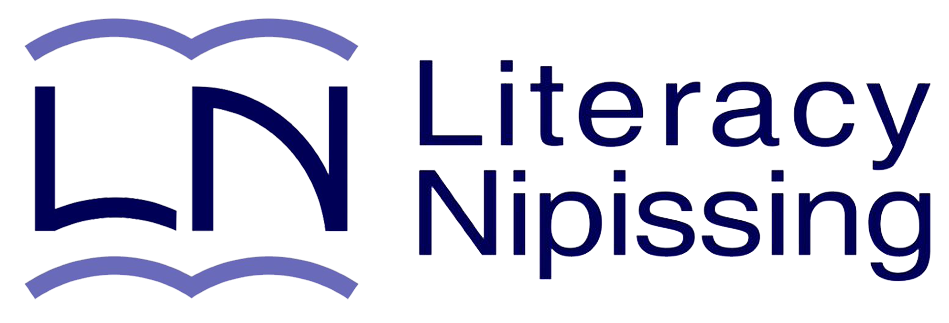Get in Touch
705.494.9416 | staff@literacynipissing.ca
204 Main Street East, Suite 100 North Bay, ON P1B 1B1
Office Hours: Monday to Thursday 8:30am - 4:00pm
DO READING AND WRITING SKILLS AFFECT HEALTH
Written by Catherine Johnson
Catherine is a community content writer from North Bay. She approached us about writing articles to bring light to the issues that adult students face in our world. Catherine is very keen to show the struggles that low level literacy adults face and how they adapt to life in our complicated world. We are so thankful that Catherine is now using her talents to help us showcase the struggles and triumphs that face adult learners every day.
Good reading and writing are essential skills in our modern world. Yet many people in Ontario do not read or write well enough to manage at home, work or for life in general. 1 in 6 people in Ontario have trouble reading the most basic text.
Most people will find this surprising, because illiteracy is often hidden in plain site. Industries, such as trucking and many trades could be learned on the job 20 or 30 years ago. A high school diploma was not required at that time, nor was a high level of reading or writing skills. Many people who started working during those days are still in the workforce today.
Even in today’s world there are jobs that do not require strong literacy skills, such as cleaning or jobs in the manufacturing sector. These jobs are dominated by women, pay poorly and are often part-time.
John is an example of a man who cannot read or write well, but was able to earn a living working in the construction industry.
John is now an older man. He doesn’t read or write well, and his math skills aren’t great either. He never did well in school and didn’t like being there. He left high school at age 15 to get a job and start earning some money. What was the point of staying in school?
There were lots of jobs in those days. He became a roofer in the construction industry. He learned his trade on the job. No one needed papers to prove they could do the work. There were no courses or tests to pass. If you showed up and didn’t work hard, you’d be fired. Things were simple then.
John worked until he was 60. He often jokingly says “All I have to show for 45 years of hard work is a bad back!” Now a senior, John is low income. He was never a member of a union, and his employers never offered a pension plan. He lives on his “Old Age Pension.” He doesn’t own a car because he can’t afford one.
Like many people who have poor reading and writing skills, John is actually very clever. He has found ways to supplement his income. He does odd jobs. He mows lawns in the summer and snow blows driveways in the winter. He has just a few customers, because he finds he has less energy and his back hurts more and more as the years go by.
He is a natural with simple mechanics. Sometimes he finds lawnmowers or bicycles that others have abandoned and fixes them up. He sells them off his front lawn. John is good at home repairs both inside and out. His neighbours will pay him cash for small tasks. He can put up curtain rods, do exterior painting, and refinish small pieces of furniture. There isn’t much he can’t do.
Except use a computer. It wasn’t necessary to use a computer to be a roofer, so he never had to learn. He always managed his affairs by going in person, or calling customer service. When The COVID-19 pandemic hit, and everything became virtual, he really felt left behind.
So how does having poor reading and writing skills affect health?
Literacy skills are strongly related to good health. Adults with lower literacy levels are less likely to have a family Doctor, were more likely to misunderstand written medical directions, and had more trouble accessing health care. They also had more frequent trips to the Emergency Room.
Let’s hear more about John.
John doesn’t have a Family Doctor. He hadn’t been to a doctor in 20 years, but finally his back pain became so bad, he went to a walk-in clinic. The doctor told John his blood pressure was really, really high and prescribed a medication to bring it down.
John asked for “pain pills” for his back, and was told the walk-in clinic did not prescribe narcotics. John felt intimidated and insulted. Did they think he was a drug addict or something!
John looked at the bottle of his new medication. There was a lot of writing on the small label and some long words. He thought the Pharmacist had told him to take one pill a day. Well, he couldn’t read the label to check.
John felt angry. This was the reason he stayed away from doctors and hospitals. They weren’t helpful, they never explained anything, and thought they knew what was good for him better than he did himself! He decided not to bother taking the medication. Afterall, he didn’t feel sick so how bad could his blood pressure be?
Sadly, there are many people in Ontario like John whose lack of reading and writing skills are a barrier to good health. John is unable to read a medication label. He is unable to understand printed patient health care information, fill out consent forms, and does not know how the health care system works.
Most literate people use the internet to find health care information, such as hours of operation, COVID-19 regulations, and information on health conditions. Some of this information in not available anywhere else. For people like John, who are unable to use the internet, this information does not exist. Most of it would be above his reading level anyway. It is not surprising most of his contact with the health care system is unsatisfying.
References:
Literacy in Canada – PMC (nih.gov)
Why literacy matters. Links between reading ability and health – PubMed (nih.gov)
Community Literacy of Ontario (2018). Literacy: Why it Matters (Brochure). Barrie, ON: Author

705.494.9416 | staff@literacynipissing.ca
204 Main Street East, Suite 100 North Bay, ON P1B 1B1
Office Hours: Monday to Thursday 8:30am - 4:00pm
All Rights Reserved | Literacy Nipissing
Site Designed & Developed by Client First Web Design & Graphics

